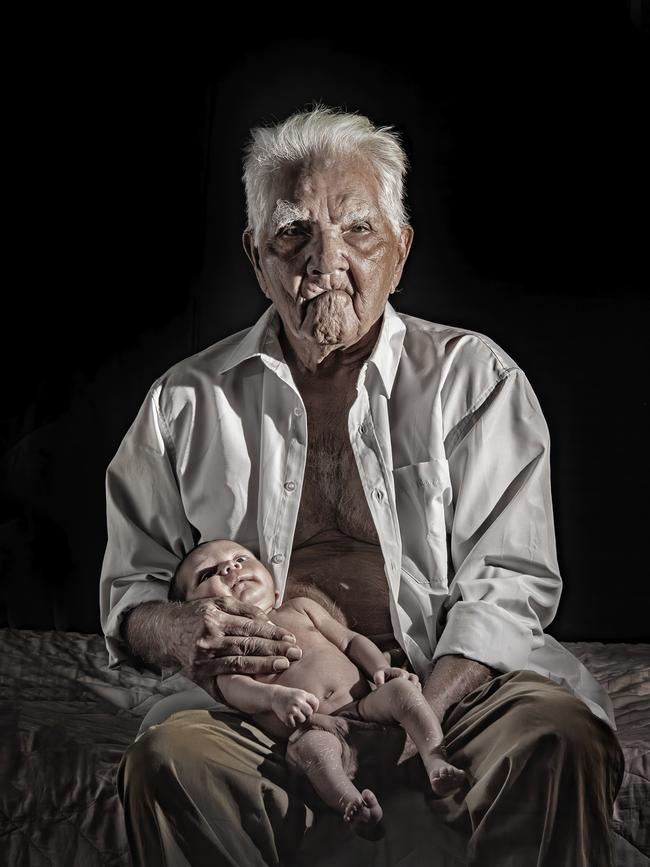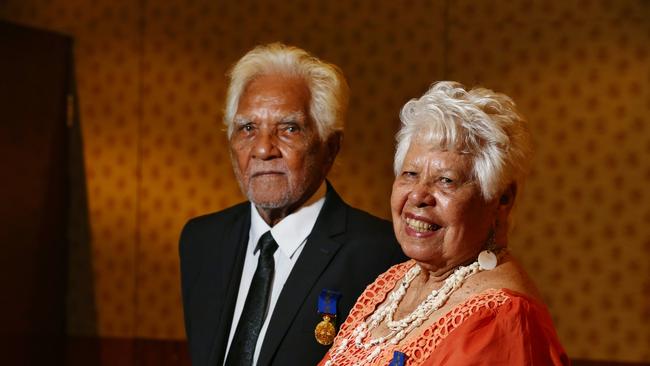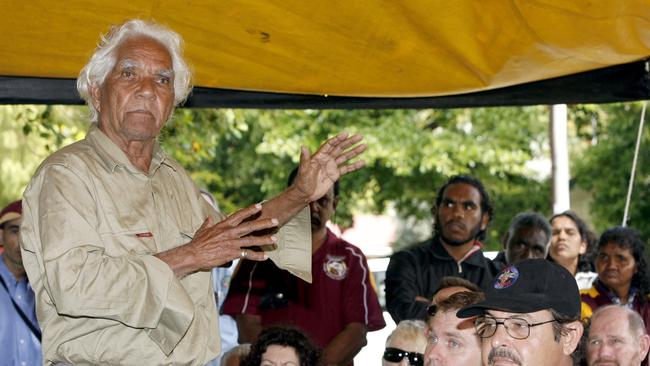Vale Alfred Neal: Great Aussie statesmen dies at 101
One of the great statesmen of Australian Indigenous politics, who was instrumental in the success of the 1967 referendum, has died. WARNING: Aboriginal and Torres Strait Islander readers are warned this story contains images of deceased persons.
QLD News
Don't miss out on the headlines from QLD News. Followed categories will be added to My News.
Alfred Neal, OAM, one of the great statesmen of Australian Indigenous politics who was instrumental in the success of the 1967 referendum, has died.
Mr Neal, who was to turn 101 in October, died at Yarrabah just south of Cairns yesterday morning about 7.30am.

He had been feeling slightly ill in the Yarrabah house he lived in with his family and was taken to the Yarrabah clinic Tuesday night before he died yesterday morning, surrounded by friends and family.
Mr Neal devoted much of his life to the advancement of Indigenous Australians and was also active in the movement towards the Voice.
He only expressed a few weeks ago his fervent desire to live to see the Voice referendum, scheduled for the end of the year, passed by the Australian people.
Born at Mount Mulligan (also known as Ngarrabullgan) west of Cairns into traditional tribal life, Mr Neal was taken as an infant to the Church of England Mission at Yarrabah and raised in a dormitory.
As a young man he became a field hand on northern sugar cane farms and developed into a “gun’’ cane cutter.
Learning about organised labour from local unions, especially the Cairns branch of the Waterside Workers’ Federation of Australia, he began successfully negotiating higher wages for Indigenous cutters.
By the 1960s, he had the respect of Australia’s rising indigenous political class and had come under the influence of figures such as the legendary Joe McGuinness who was active in the Waterside Workers Federation and secretary of the Cairns Aboriginal and Torres Strait Islander Advancement League.

Mr Neal also worked for several years with figures such as Indigenous elder Ruth Hennings on the successful 1967 referendum which allowed the Commonwealth to make laws for Indigenous people and included them in the Census.
Both he and Ruth Hennings were awarded the Medal of the Order of Australia in 2019 for their pivotal role in the 1967 referendum.
Mr Neal was also a member of the Yarrabah Council and one of the pioneers of small business in the community, helping to create a profitable banana plantation in the 1970s and also establishing a bakery.
Ian Kuch, who has been involved with the North Queensland Aboriginal community for decades and who was given family permission to speak to the media yesterday, said Mr Neal devoted himself to his community.
“”He could have gone on alone and been anything he wanted to be in this world but he devoted himself to helping his people,’’ Mr Kuch said.
“And Alf would always help what he called the ‘stragglers’ - the people who were being marginalised and maybe a bit ignored and left behind in the community - he always had an eye out for them.’’

Mr Neale’s son Percy, one of Mr Neal’s nine children, said his father’s defining characteristics were his humility, his good humour and his kindness.
“He never put himself forward, he never wanted to be in the spotlight, he always wanted to use his influence in a quiet way,’’ Percy, 73, said.
”He doesn’t like much of what happened to Aboriginal people and to himself, but he never got bitter about it.
“He never stopped finding humour in everything.’’
Mr Neal’s wife Jessie predeceased him but his nine children all survive.
Details of Mr Neal’s funeral are expected to be released in the next few days.
Originally published as Vale Alfred Neal: Great Aussie statesmen dies at 101



